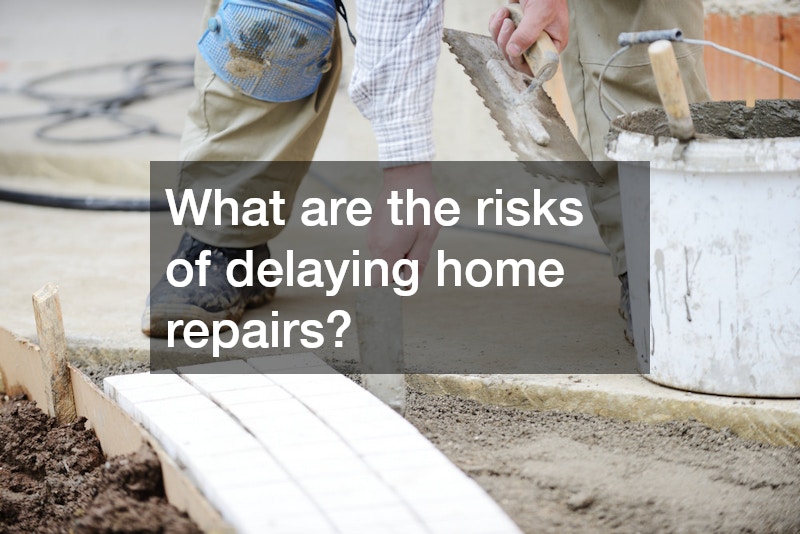
In every homeowner’s life, there comes a time when home repairs are necessary. Whether it’s a leaky faucet, a faulty electrical outlet, or a damaged roof, these issues require attention to maintain the safety and comfort of the household. However, financing these repairs can often be a challenge, especially if they are unexpected or involve major structural components. In this article, we will explore common home repair services, the benefits of hiring a handyman solution, financing options available, and the importance of regular maintenance to prevent costly repairs.
What are the most common home repair services?
When it comes to home repairs, there are several common services that homeowners may encounter. Plumbing is a frequent issue, with issues such as clogged drains, leaking pipes, and malfunctioning toilets requiring attention from local plumbing companies. Electrical problems, including faulty wiring, outdated outlets, and flickering lights, are also common. Additionally, roofing repairs, such as leaks, missing shingles, or damaged gutters, are essential to maintaining a safe and secure home.
One way to address these common home repair services is by hiring a qualified and experienced handyman solution. A handyman can provide quick fixes for minor issues, such as replacing a faucet or fixing a leaky pipe. They can also offer maintenance services to prevent more costly repairs in the future, such as inspecting electrical systems or conducting routine roof inspections.

How can a handyman solution help with home repairs?
One of the main advantages of hiring a handyman solution is their ability to provide quick fixes for minor issues around the home. Whether it’s fixing a leaky faucet, water heater replacement, or replacing a light fixture, a handyman can tackle these tasks efficiently and effectively. This can save homeowners time and hassle, allowing them to focus on other aspects of their lives.
In addition to quick fixes, a handyman can also offer maintenance services to prevent costly repairs down the line. By conducting routine inspections of plumbing, electrical, and roofing systems, a handyman or roofing contractor can identify potential issues before they become major problems. This proactive approach can not only save homeowners money in the long run but also ensure the safety and integrity of their home.
Overall, hiring a handyman solution or residential electrical contractor for home repairs can provide peace of mind and convenience for homeowners. Whether it’s addressing a minor issue or conducting routine maintenance, a handyman’s expertise and professionalism can make the process smooth and stress-free.
Is it better to hire a professional for home repairs?
When it comes to home repairs, hiring a professional is often the best choice for homeowners. Professionals bring expertise and knowledge to the job, ensuring that repairs are done correctly and safely. Whether it’s fixing a leaky pipe, replacing a light fixture, or providing garage door services, professionals can handle the task efficiently and effectively.
In addition to expertise, hiring a professional for home repairs can save homeowners time and money in the long run. Professionals have the tools and skills necessary to complete repairs quickly and accurately, reducing the risk of further damage or the need for future repairs. While DIY repairs may seem cost-effective at first, they can often lead to more expenses and headaches in the long term.
How to find a reliable handyman solution?
When it comes to finding a reliable handyman solution, there are several steps homeowners can take to ensure they hire the right person for the job. One of the best ways to find a reliable handyman is by asking for recommendations from friends and family. Personal recommendations can provide valuable insights into a handyman’s professionalism, reliability, and quality of work.
Another way to find a reliable handyman is by checking online reviews and ratings. Websites such as Yelp, Angie’s List, and HomeAdvisor can provide valuable feedback from previous customers, giving homeowners an idea of a handyman’s reputation and track record. By doing research and reading reviews, homeowners can make informed decisions when hiring a handyman.
Overall, finding a reliable handyman solution involves doing thorough research, asking for recommendations, and checking references. By taking the time to find the right person for the job, homeowners can ensure that their home repairs are done efficiently, effectively, and professionally.

What are the common financing options for home repairs?
When it comes to financing home repairs, there are several options available to homeowners. One common option is personal loans, which can provide funds for repairs such as plumbing, electrical, roofing, or HVAC installations. Personal loans offer flexibility in terms of repayment and can be a convenient way to finance necessary repairs.
Another financing option for home repairs is home equity loans or lines of credit. Home equity loans allow homeowners to borrow against the equity in their home, using the funds for major repairs or renovations. Home equity loans typically offer lower interest rates than personal loans and can be a cost-effective way to finance home repairs.
Are there government programs available to help with home repairs?
In addition to traditional financing options, there are also government programs available to help homeowners with home repairs. One such program is the HUD Title I Property Improvement Loan Program, which provides loans to homeowners for repairs and improvements. These loans can be used for a variety of projects, including plumbing, electrical, roofing, and HVAC installations.
Another government program that can help with home repairs is the USDA Rural Repair and Rehabilitation Grants. These grants are available to low-income homeowners in rural areas and can provide funds for essential repairs and improvements. By taking advantage of these government programs, homeowners can receive financial assistance for necessary repairs and upgrades.
How can I budget for home repair expenses?
When it comes to budgeting for home repair expenses, there are several strategies homeowners can use to ensure they have funds available when needed. One way to budget for home repair expenses is to prioritize necessary repairs over cosmetic upgrades. By focusing on essential repairs first, homeowners can ensure the safety and integrity of their home before moving on to aesthetic improvements.
Another way to budget for home repair expenses is to set aside a home maintenance fund each month. By allocating a portion of their income to a maintenance fund, homeowners can build up savings for future repairs and improvements. This can help prevent financial stress when unexpected repairs arise and ensure that the home remains in good condition.
What are the advantages of regular home maintenance?
Regular home maintenance has many advantages for homeowners, including increased property value and avoiding emergency repairs. By maintaining the home’s systems and components, homeowners can prevent costly repairs and ensure the safety and comfort of their household. Regular maintenance from home professionals and local paving contractors can also help identify potential issues early on, allowing for timely repairs and improvements.
One way to maintain a positive relationship with a handyman service is to communicate clearly and openly about expectations. By discussing the scope of work, timeline, and budget upfront, homeowners can ensure that both parties are on the same page. Providing feedback and appreciation for quality work can also help maintain a positive relationship with a handyman service and ensure future collaborations.
Should I invest in home warranty plans for repair services?
When it comes to home repairs, homeowners may consider investing in home warranty plans for coverage of major systems and appliances. Home warranty plans can provide peace of mind by covering the cost of repairs or replacements for covered items. However, homeowners should consider annual premium costs, coverage limitations, and exclusions when deciding whether to purchase a home warranty plan.
Before investing in a home warranty plan, homeowners should carefully review the coverage details, exclusions, and limitations to ensure they understand what is and isn’t covered. Home warranties can be a valuable investment for some homeowners, providing financial protection and peace of mind when unexpected repairs are needed.
How can I DIY common home repairs to save money?
One way homeowners can save money on home repairs is by tackling DIY projects themselves. By watching online tutorials and guides, homeowners can learn how to complete common repairs such as fixing leaky faucets, replacing light fixtures, or repairing damaged drywall. Investing in quality tools for long-term use can also help homeowners save money on repairs by avoiding the need to hire a professional for simple tasks.
While DIY repairs can save homeowners money, it’s important to know when to call in a professional for more complex or dangerous tasks. Electrical, plumbing, and roofing repairs should be left to professionals to ensure safety and quality workmanship. Homeowners can still save money on repairs by tackling minor projects themselves and hiring professionals for more challenging tasks.

What are the risks of delaying home repairs?
Delaying home repairs can have serious consequences for homeowners, including structural damage to the property and health hazards from mold or water damage. By neglecting repairs, homeowners risk further damage to their home’s systems and components, leading to costly repairs and potential safety hazards. Addressing repairs promptly can prevent these risks and ensure the long-term safety and integrity of the home.
One way to avoid the risks of delaying home repairs is to stay proactive and attentive to signs of needed repairs. Water stains on ceilings or walls, electrical issues like flickering lights, or strange odors can indicate underlying problems that require attention. By addressing these issues promptly, homeowners can prevent further damage and maintain the safety and comfort of their household.
Can homeowners insurance cover home repair costs?
Homeowners insurance can provide coverage for sudden and accidental damages to a home, including repairs for plumbing, electrical, roofing, and HVAC systems. However, homeowners should review their policy coverage to ensure they understand what repairs are included and excluded. While homeowners insurance can provide valuable financial protection for unexpected repairs, it may not cover all types of damages or wear and tear over time.
Before filing a claim for home repairs, homeowners should review their policy details, deductibles, and coverage limitations to ensure they understand what is and isn’t covered. By knowing the extent of their coverage, homeowners can make informed decisions about when to file a claim and how to proceed with repairs. Homeowners insurance can be a valuable resource for covering repair costs, but policyholders should understand their coverage to avoid surprises or denied claims.

What are the signs that indicate the need for home repairs?
There are several signs that homeowners should be aware of that may indicate the need for home repairs. Water stains on ceilings or walls can indicate a leaky roof, damaged plumbing, or other issues that require attention. Electrical issues such as flickering lights, outlets not working, or sparks can also signal potential problems and the need for repairs.
Other signs that homeowners should watch for include strange odors, unusual sounds, or changes in utility bills. These signs can indicate underlying issues with plumbing, HVAC systems, or other components of the home that may require attention. By staying attentive to these signs and addressing them promptly, homeowners can prevent further damage and maintain the safety and comfort of their household.
How to maintain a positive relationship with your handyman solution?
Maintaining a positive relationship with a handyman service involves clear communication, respect, and professionalism. By communicating clearly and openly about expectations, homeowners can ensure that both parties are on the same page and understand the scope of work. Providing feedback and appreciation for quality work can also help maintain a positive relationship with a handyman service and ensure future collaborations.
Another way to maintain a positive relationship with a handyman service is to be respectful of their time, expertise, and skills. By acknowledging their professionalism and valuing their contributions to the job, homeowners can build a strong working relationship with their service provider. Offering referrals or future business can also help show appreciation and build loyalty with a handyman service.
In conclusion, home repairs are a necessary part of homeownership, and finding the right handyman solution can make the process smooth and stress-free. By understanding common home repair services, hiring professionals for quality workmanship, exploring financing options, and prioritizing regular maintenance, homeowners can ensure the safety, comfort, and integrity of their homes for years to come. Whether it’s addressing plumbing, electrical, roofing, or repairs fit for HVAC contractors, homeowners can benefit from hiring a reliable handyman and investing in the maintenance and upkeep of their property. By staying proactive and attentive to signs of needed repairs, homeowners can avoid costly damage and safety hazards while maintaining a positive relationship with their handyman service. In the end, home repairs, from furnace installs to roofing repairs, are an investment in the long-term value and well-being of the home, and homeowners should take the necessary steps to ensure their property remains safe, secure, and comfortable.


